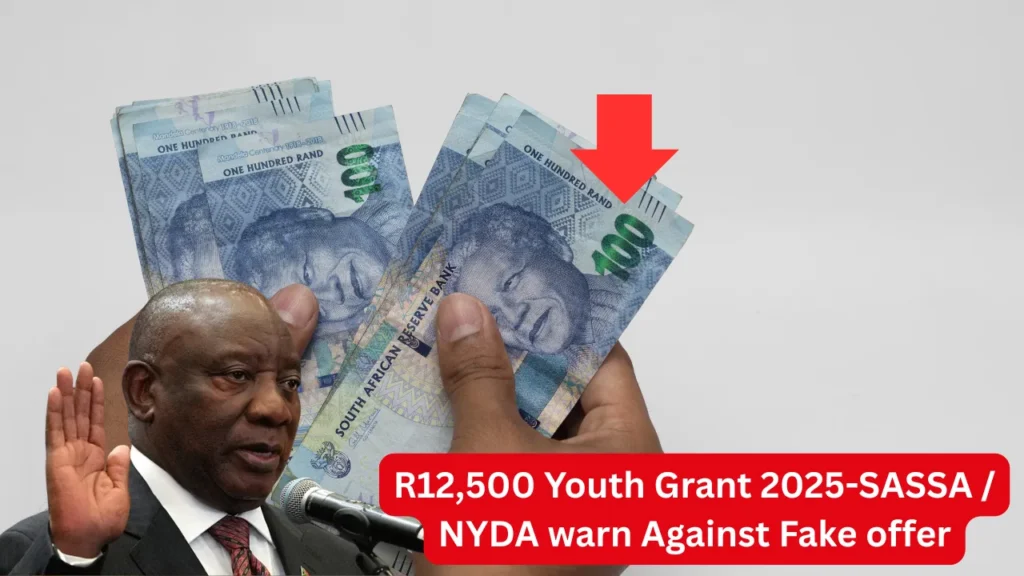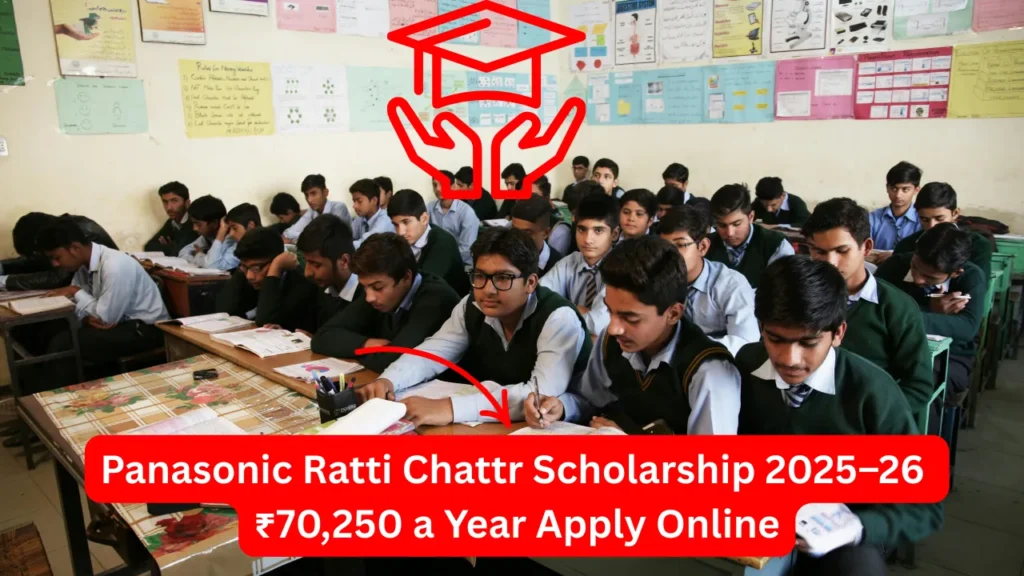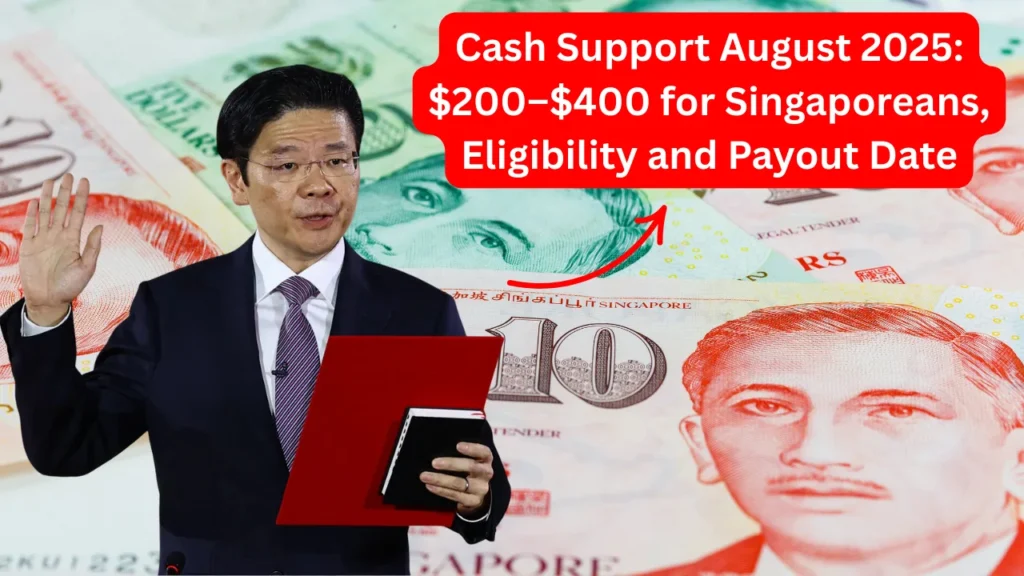A message spreads that unemployed youth between 18 and 35 can apply for a once-off R12,500 “Youth Grant 2025.” The posts say applicants only need to be out of work and not getting other government support. Many young people face real financial pressure, so a large once-off payment sounds helpful and easy to trust. The claim uses familiar tactics: warm language, urgent tone, and a simple sign-up prompt. It also appears in short videos and reposts that look authentic at first glance.
R12,500 Youth Grant 2025: what the viral promise claims
| Claim | Posts promote a “R12,500 Youth Grant 2025” for 18–35-year-olds |
| Official position | No such once-off youth grant exists; agencies call it fake |
| Agencies involved | SASSA and NYDA issue public warnings |
| Risk level | High risk of data theft, advance-fee scams, and fraud |
| What to do | Ignore the offer, do not share personal data, verify only through official channels |
| Real opportunities | Youth programs run through NYDA’s official systems; they focus on training, mentorship, and enterprise support, not once-off payouts |

What SASSA and NYDA say about the “Youth Grant 2025”
Both SASSA and the NYDA state clearly that this offer does not exist. They warn the public to reject the claim and avoid sharing ID numbers, bank details, or other personal data with strangers. Real youth programs run through official systems and follow proper checks. These programs support skills, enterprise development, and work readiness. They do not send once-off cash gifts on social media. The message is simple: no R12,500 youth grant is in place, and posts that say so are fake.
Why the rumor spreads so fast
The story gains attention because youth unemployment remains high. Young people look for any lifeline that can help a family or start a small business. Scam posts tap into this need with simple promises and sharp deadlines that push quick decisions. When a friend or local group shares the post, it feels more believable. Videos that show “application demonstrations” add another layer of false credibility. The result is a message that travels quickly, even when the source is unverified.
Red flags that expose the “Youth Grant 2025” hoax
Use this checklist to spot the pattern most fake offers follow:
- Upfront fees or “processing charges.” Real grants do not charge you to apply or to release funds.
- Unverified links or forms that ask for ID, bank details, or one-time passwords.
- Promises of large once-off payouts without a policy notice, a proper application window, or public guidelines.
- Pressure language such as “limited slots,” “apply now,” or “don’t miss out today.”
- Poor spelling, odd formatting, and no traceable contact person or office details.
If two or more of these signs appear, treat the post as a scam and move on.
How to check if a youth grant is genuine
A real program leaves a paper trail: a public announcement, policy FAQs, clear timelines, and a defined process. To protect yourself:
- Check only official channels. Do not rely on screenshots, forwards, or anonymous videos.
- Match names and details. Scammers often use a real logo next to a fake offer. Compare the wording with known program names you see in official notices.
- Confirm the application path. Authentic youth support runs through approved portals and service points, not informal forms shared in group chats.
- Ask a trusted advisor. A community office, career center, or school administrator can help validate announcements before you act.
What real youth support usually looks like
Legitimate youth programs focus on long-term benefits rather than once-off cash drops. Expect:
- Training and certification that lift employability in scarce-skill fields
- Enterprise support such as business mentorship, seed funding with screening, and staged disbursements
- Placement pathways that connect youth to internships, learnerships, or entry roles
- Eligibility rules and queues that make sense: ID checks, income tests, program caps, and published schedules
These features protect public money and guide young people into durable careers, not one-time payouts that disappear in a day.
If you already shared your details
Act now to limit harm:
- Secure your bank account. Change PINs and online passwords, enable alerts, and watch for unusual activity.
- Flag your ID risk. Keep copies of any messages you sent the scammer in case authorities need evidence.
- Report the post. Remove it from your own feed and notify the platform so fewer people see it.
- Inform close contacts. Tell family and friends who might follow your shares to ignore the fake offer.
Youth Grant 2025: quick facts to remember
- Real youth programs support skills, enterprise, and jobs, not surprise handouts.
- There is no R12,500 Youth Grant for 2025.
- SASSA and NYDA warn the public against this claim.
- Do not pay any fee or share personal data for it.
- Trust only official announcements you can confirm through known channels.
FAQs About R12,500 Youth Grant 2025
No. The R12,500 Youth Grant claim is false. Agencies urge the public to ignore it and avoid sharing personal information.
No one. There is no active once-off youth grant of R12,500. Any post asking you to apply for it is a scam.
Authentic programs appear through official channels with public guidelines, clear timelines, and proper application steps. They support skills, enterprise, and work readiness rather than single cash drops.
Watch for upfront fees, requests for bank details, odd grammar, and pressure tactics. If a post looks rushed or too generous, it is likely a scam.
Secure your accounts, change passwords, set alerts, and report the post. Keep evidence of your interaction in case you need to take further action.
The “Youth Grant 2025” story promises quick relief but offers only risk. A real youth strategy invests in skills, business support, and job pathways. That takes structure, identity checks, and transparent rules. Protect your information, ignore viral shortcuts, and verify every new opportunity through trusted channels before you share or apply.
Click here to learn more

John Michael Ramos is a blogger passionate about Government Schemes, Exams, Automobiles, and Trending News. His aim is to provide simple and authentic information.

